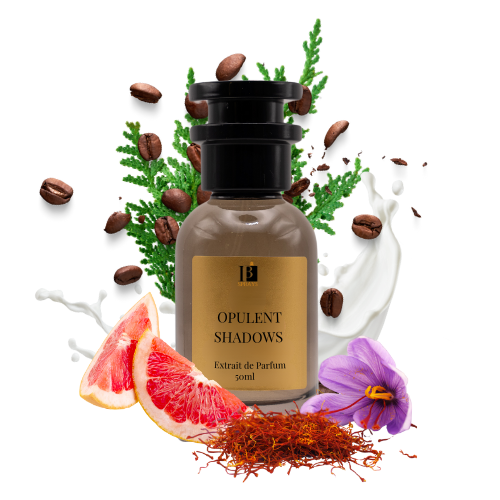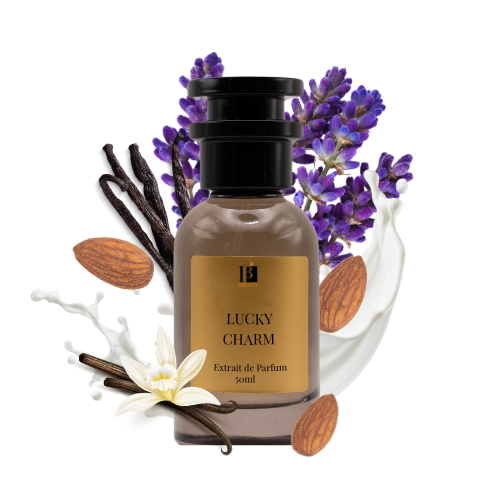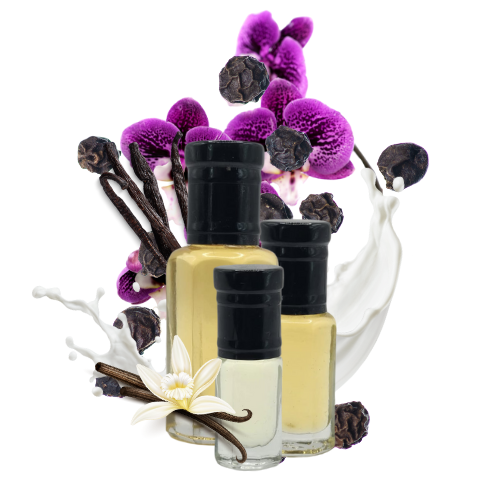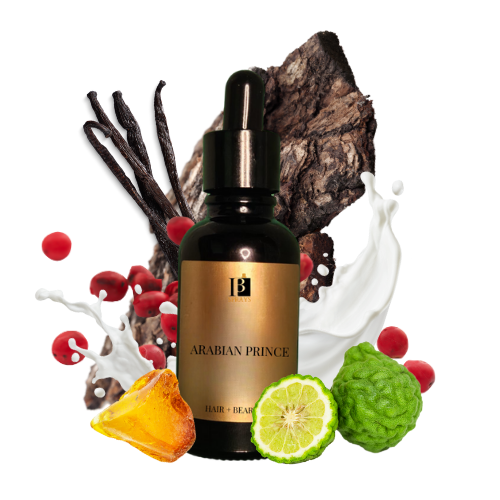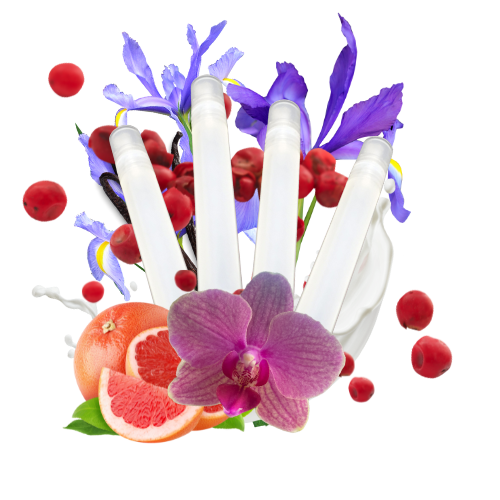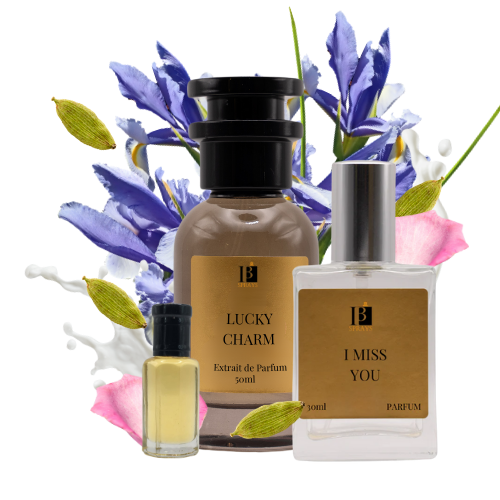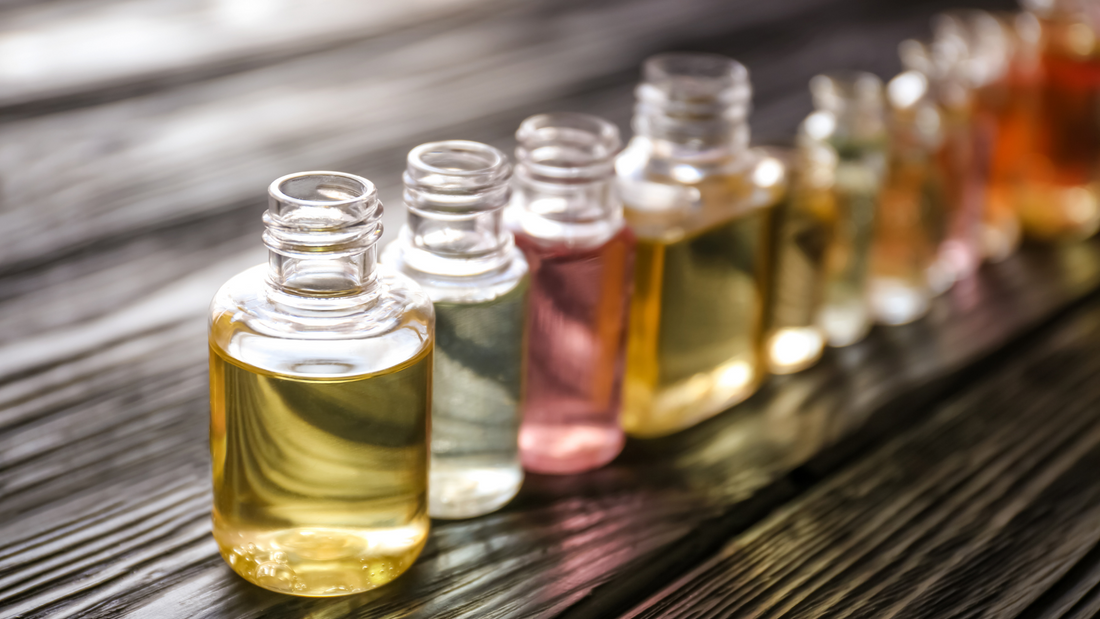
Essential Oils vs. Perfume Oils: Understanding the Difference
Share
People often confuse perfume oils with essential oils, but they are not the same thing. Each has its own distinct set of characteristics and applications. In this article, we explain what perfume oils and essential oils are, what they are used for and the key differences between them.
What are Perfume Oils?
Perfume oils, often referred to as fragrance oils, are meticulously crafted blends of aromatic compounds designed to capture and emanate captivating scents. These oils represent a fusion of both natural and synthetic elements to create an array of fragrances.
The formulation process involves meticulously blending various notes—top, middle, and base—resulting in a harmonious and enduring scent. Perfumers craft perfume oils to achieve specific olfactory profiles.
What are Perfume Oils Used For?
Perfume oils are used as a longer-lasting alternative to perfumes. They are applied strategically on pulse points like wrists and neck, ensuring a more enduring fragrance. Their longer staying power makes them ideal for special occasions, providing a lingering and memorable olfactory presence. Additionally, perfume oils can be layered with complementary scented products like lotions or shower gels to enhance and extend the overall fragrance experience.
What are Essential Oils?
Essential oils are the pure, concentrated essence extracted from plants through methods like steam distillation or cold pressing. These oils capture the aromatic compounds found in various plant parts, including flowers, leaves, stems, and roots. Renowned for their purity, essential oils contain no synthetic additives, providing an authentic and unadulterated connection to nature.
What are Essential Oils Used For?
Beyond their delightful scents, essential oils are valued for their therapeutic properties. Lavender, for example, is known for its calming effects, while eucalyptus offers respiratory benefits. Essential oils contribute to holistic well-being, addressing issues beyond fragrance. They can be diffused into the air for therapeutic inhalation or applied topically when diluted with a carrier oil. Their ephemeral nature makes them ideal for various uses, including relaxation, skincare, and aromatherapy.
What are the Key Differences Between Perfume Oils and Essential Oils?
There are several key differences between perfume oils and essential oils. These are:
Composition
- Perfume Oils: Crafted blends of aromatic compounds, both natural and synthetic, offering a diverse range of scents.
- Essential Oils: Pure, concentrated plant extracts containing no synthetic additives, ensuring authenticity.
Therapeutic vs. Aesthetic
- Perfume Oils: Primarily focused on aesthetic appeal and providing longer-lasting olfactory experiences.
- Essential Oils: Valued for therapeutic benefits, addressing issues beyond fragrance, and promoting holistic well-being.
Application
- Perfume Oils: Applied strategically on pulse points for a more enduring fragrance, suitable for special occasions.
- Essential Oils: Used in various ways, including diffusion, topical application, and incorporation into skincare routines.
Duration of Fragrance
- Perfume Oils: Designed for a prolonged olfactory presence with a more enduring staying power.
- Essential Oils: Tend to evaporate relatively quickly, offering a more transient and ephemeral aromatic experience.
Can Essential Oils be Used as a Wearable Fragrance?
Essential oils can be used as a wearable fragrance. Many choose essential oils as a natural and holistic alternative to traditional perfumes. However, essential oils evaporate quickly and don't last as long as regular perfumes.
Perfume oils hold distinct advantages over essential oils when it comes to wearable fragrances. The crafted blends of aromatic compounds in perfume oils offer a more extensive and sophisticated range of scents, allowing for greater creative expression. Unlike essential oils, which are extracted directly from plants and may have a more limited range of fragrances, perfume oils can encompass a variety of notes, from fruity and floral to woody and exotic.
Moreover, the carefully balanced composition of perfume oils ensures a longer-lasting olfactory experience, making them ideal for individuals seeking enduring and memorable scents throughout the day. The versatility and complexity of perfume oils and their refined and artistic formulations contribute to their popularity as a preferred choice for those seeking a nuanced and personalised fragrance.

